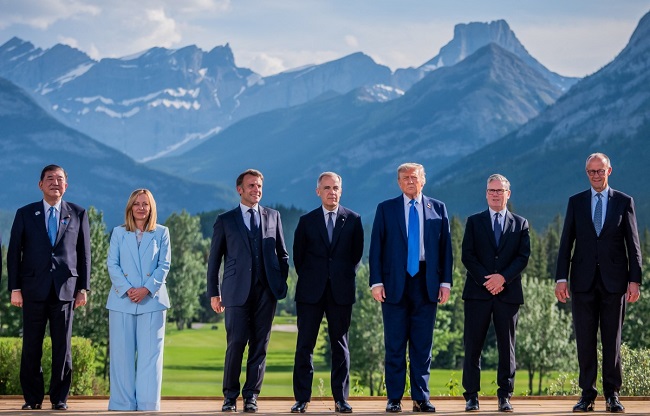
WafricNews – June 29, 2025
In a significant development for international taxation, the Group of Seven (G7) countries has reached a consensus to exempt American multinational corporations from the global minimum tax framework currently being adopted by many countries. The move is seen as a diplomatic win for the United States under the administration of President Donald Trump, which had pushed hard for special provisions favoring US-based firms.
According to a statement issued by Canada — which holds the rotating G7 presidency — the agreement introduces a “side-by-side” tax approach. Under this framework, US multinational companies would only be taxed in the United States, covering both their domestic and international profits.
The G7 cited ongoing reforms within the US tax system, particularly elements of President Trump’s flagship domestic legislation still under review in Congress, as part of the rationale behind the compromise.
"This arrangement is expected to provide greater stability and certainty to the international tax landscape," the G7 statement noted.
The broader context involves a 2021 international accord, brokered through the Organisation for Economic Co-operation and Development (OECD), which aimed to overhaul how multinational firms are taxed. That agreement, backed by nearly 140 countries, includes a global minimum corporate tax rate of 15 percent — the second pillar of a two-part deal intended to curb tax avoidance and ensure fairer revenue distribution.
President Trump has been a vocal critic of the OECD plan, especially the global minimum tax component, describing it as unfavorable to American economic interests.
Despite the G7’s consensus, final decisions regarding exemptions for US companies will rest with the OECD, which must determine whether the proposed US-based approach aligns with the global framework.
Speaking on Thursday, US Treasury Secretary Scott Bessent said discussions among G7 nations were moving toward a "mutual understanding that upholds American competitiveness." He also urged US lawmakers to discard Section 899 — a controversial clause within the proposed tax bill — calling it counterproductive.
Dubbed a “revenge tax,” Section 899 allows Washington to levy charges on companies with significant foreign ownership, particularly from jurisdictions accused of imposing discriminatory taxes on US firms. Critics argue it could deter foreign investment in the US economy.
With negotiations continuing, the G7 says it remains committed to reaching “a timely and universally acceptable solution” that balances national interests with global tax equity.
By WafricNews Desk
By WafricNews Desk


Comment
To post a comment, you have to login first
LoginNo Comments Yet...